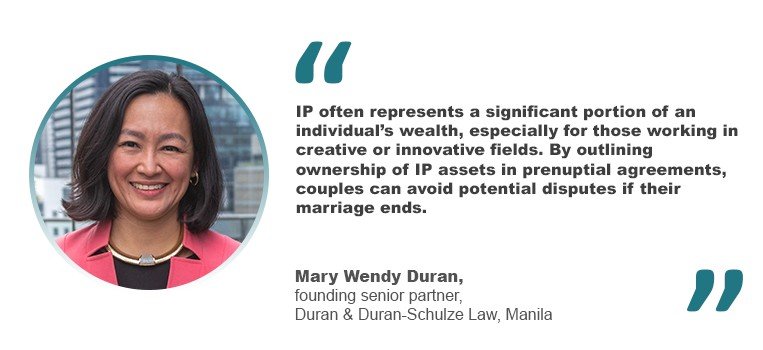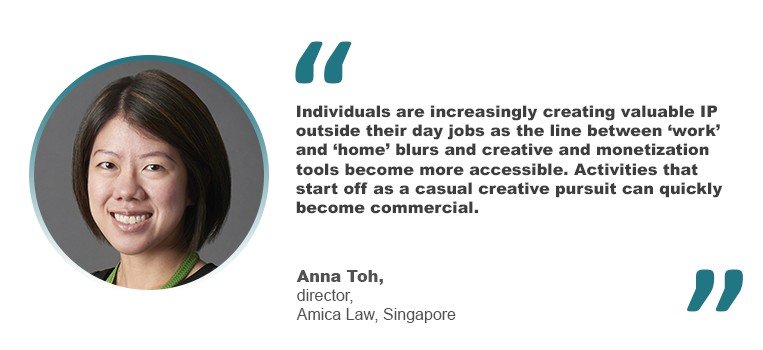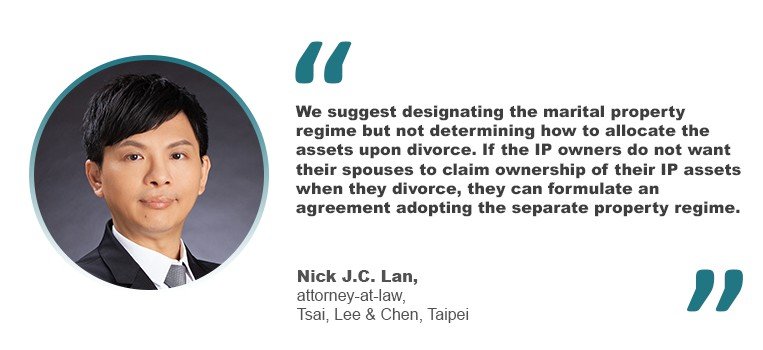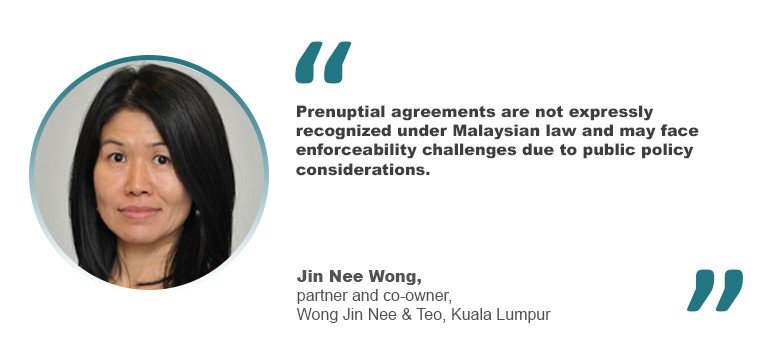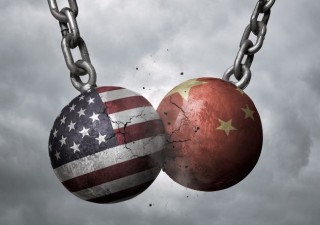“I think IP assets should definitely be addressed in prenuptial agreements, even if it is to say that the assets are excluded from the matrimonial pool,” agreed Anna Toh, director at Amica Law in Singapore. “reating valuable IP outside their day jobs as the line between ‘work Individuals are increasingly c’ and ‘home’ blurs and creative and monetization tools become more accessible. Activities that start off as a casual creative pursuit can quickly become commercial. So, the certainty and protection that parties want from a prenup should extend to their personal IP assets as well.”
According to Toh, all IP assets between the couple must be addressed in the prenup contract, including business IP assets if they are entrepreneurs or have a joint business. If only one party is an entrepreneur, his or her business’s IP assets must be included as well for clarity that the assets don’t belong to them as individuals. “Social media accounts should also be included, especially if the couple has pages that they both contribute to, like pet accounts or home design pages,” she said.
IP clauses, provisions and considerations in prenuptial agreements
First off, a pair who’s about to say “I do” at the altar must consult experts in both family law and IP law. “Each of these fields brings unique perspectives which will help in creating a comprehensive, solid and fair prenuptial contract,” said Duran.
Prenuptial agreements that contain IP-related matters should include clauses that address the following:
The couple must also consider including provisions to establish the following:
Additionally, there must be considerations for confidentiality and non-compete agreements.
“Couples should furthermore carefully document the origin of IP assets. This means that the couples should make an inventory of all their IP assets that they have prior to marriage, and in preparing their prenuptial agreement, they should also indicate the history or when the respective couples have acquired their IP assets,” Duran said.
Further, she said the couple must be detailed in their accounting of how these IPs came to value and of these assets’ future potential.
“Each clause should be customized to fit the unique circumstances of the couple, taking into account their professional paths and creative potential,” she noted.
Prenups in the Philippines, Singapore, Taiwan and Malaysia
Prenup contracts that contain IP-related matters aren’t common in the Philippines and Singapore. But since the world is now moving quickly into one with more knowledge-based economies and digital industries, addressing IP rights in a prenup agreement is becoming more important.
“This is most specifically applicable to Generation Zs [with] most of their work output [being] in digital forms now, such as software, video editing, YouTube marketing, AI generation of bots and others. These are already considered IP assets that generate income,” Duran said.
The same goes for couples working in entertainment, research and design. These are IP-rich industries; hence, individuals working in these spaces must also be aware of the potential value of their IP before they set their date at the altar.
Toh agreed. “I expect the inclusion of IP assets will become increasingly common as Singapore’s economy becomes more knowledge-based and individuals grow more aware of the value of IP assets. This will be especially so for entrepreneurs and those in creative industries,” she said.
In Taiwan, some courts believe marriage is intended for a couple to live together permanently.




